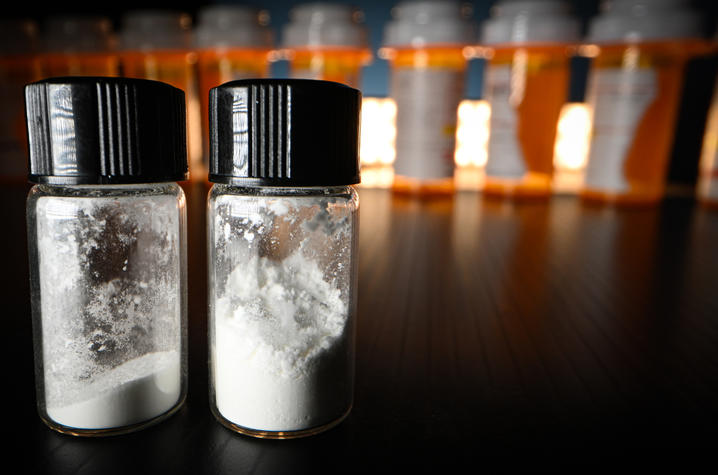UK Study: Black Overdose Death Rate Doubles in Kentucky

LEXINGTON, Ky. (June 1, 2022) — The rate of deadly drug overdoses among Black people in Kentucky more than doubled from 2016 to 2020, according to a new analysis by University of Kentucky researchers.
The Black overdose mortality rate increased by nearly 117% — from 21.2 deaths for every 100,000 people in 2016 to 46.0 per 100,000 in 2020, according to the research published in the journal Public Health Reports.
Using Kentucky death certificates and postmortem toxicology reports from 2016-2020, the team of researchers who are part of UK’s HEALing Communities Study (HCS) evaluated changes in drug overdose mortality for various racial and ethnic groups. The study shows that about 80% of drug overdose deaths among all racial and ethnic groups in Kentucky involved opioids.
“Historically, opioid overdose death rates have been disproportionately higher among white individuals, but the new study shows that the rates for both white and Black individuals in Kentucky are now nearly the same,” said study co-author Svetla Slavova, Ph.D., associate professor in the UK College of Public Health who is a part of the HCS research team and a faculty member in the Kentucky Injury Prevention and Research Center. “This reflects national data, which show that disparities in opioid overdose deaths continue to worsen for Black people.”
The shifting demographics are helping to inform drug overdose prevention efforts in Kentucky, including UK’s HCS aimed at reducing opioid-involved overdose deaths in 16 intervention communities across the Commonwealth.
“Black Kentuckians who are at risk for drug overdose may face additional barriers to accessing treatment,” said Sharon Walsh, Ph.D., the principal investigator for UK's HCS and director of UK’s Center on Drug and Alcohol Research. “This study underscores the importance of our efforts to expand treatment and harm reduction services in Kentucky’s communities of color.”
HCS has been expanding efforts to reach and engage people in communities of color through culturally tailored interventions and partnerships with community organizations. The goal is to connect people to evidence-based practices proven to reduce opioid overdose, including increasing access to and treatment with FDA-approved medications for opioid use disorder (including buprenorphine and methadone), overdose education and distribution of naloxone, a life-saving medication that rapidly reverses an opioid overdose.
The study reflects other national trends, including a rise in overdose deaths driven by illegally manufactured fentanyl. Fentanyl was identified as a contributing substance in more than 70% of drug overdose deaths among all ethnicities in Kentucky in 2020.
While fentanyl is linked to most overdose deaths, the study reports a rise in the involvement of stimulants, such as methamphetamines and cocaine. From 2016 to 2020, the number of psychostimulant-involved drug overdose deaths increased 513% among Black individuals and 191% among whites.
The study authors note that more research is needed to fully understand the social, cultural and illicit market circumstances driving these rapid trend changes as well as drivers of health inequity that may be contributing to drug overdose deaths among various racial and ethnic groups.
Research reported in this publication was supported by funding from the Centers for Disease Control and Prevention under Award Number 5 NU17CE924971-03, by the U.S. Food and Drug Administration under Award Number HHSF223201810183C under Broad Agency Announcement Number 17-00123, and by the National Institutes of Health through the Helping to End Addiction Long-term Initiative under Award Number UM1DA049406. The content is solely the responsibility of the authors and does not necessarily represent the official views of the Centers for Disease Control and Prevention, U.S. Food and Drug Administration or the National Institutes of Health.
As the state’s flagship, land-grant institution, the University of Kentucky exists to advance the Commonwealth. We do that by preparing the next generation of leaders — placing students at the heart of everything we do — and transforming the lives of Kentuckians through education, research and creative work, service and health care. We pride ourselves on being a catalyst for breakthroughs and a force for healing, a place where ingenuity unfolds. It's all made possible by our people — visionaries, disruptors and pioneers — who make up 200 academic programs, a $476.5 million research and development enterprise and a world-class medical center, all on one campus.




